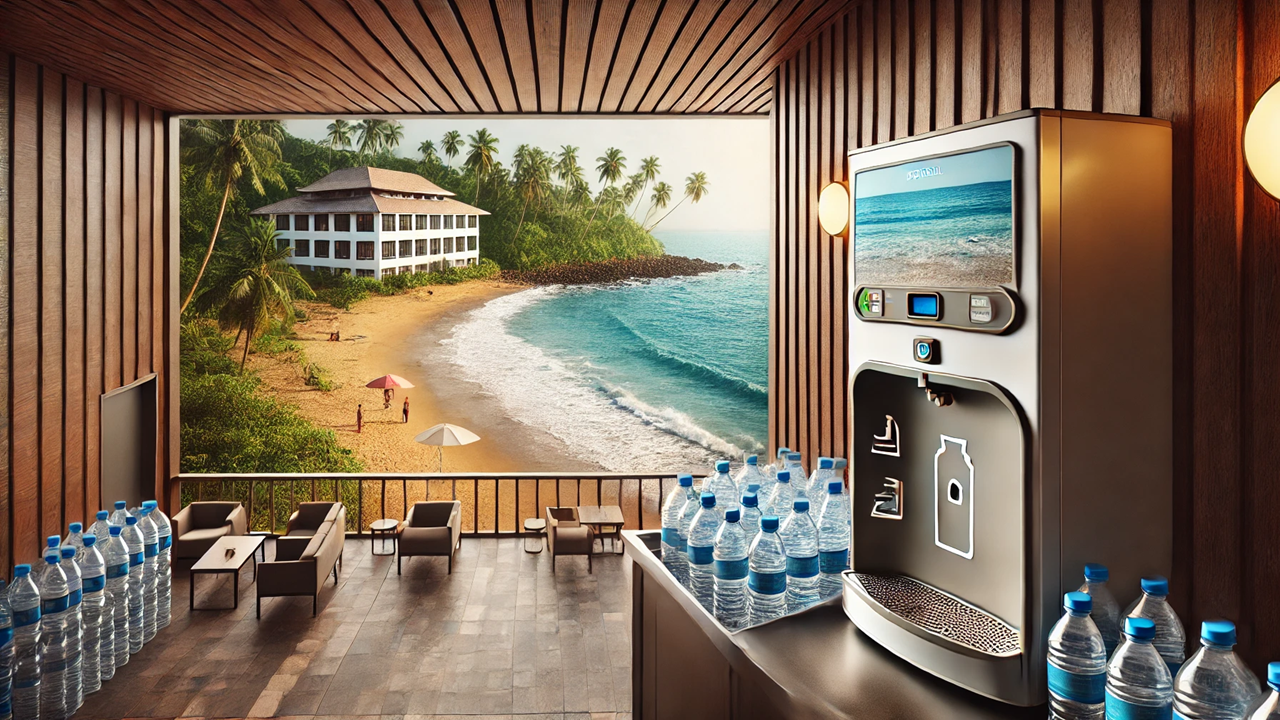Sierra Leone Takes Steps Toward Sustainable Tourism by Tackling Plastic Waste
Sierra Leone is addressing the environmental toll of single-use plastics in its tourism sector through guidelines developed by the World Bank. The report titled "Sierra Leone Circular Economy in Plastics for Sustainable Tourism and Economic Diversification: Single-Use Plastic Reduction Guidelines for Hotels and Restaurants" outlines a four-step strategy for hotels and restaurants to assess and reduce their plastic use. By adopting these strategies, Sierra Leone aims to protect its environment and boost sustainable tourism.

Sierra Leone is taking bold strides in transforming its tourism sector by tackling one of the world's most pressing environmental challenges—single-use plastics (SUP). In a move toward sustainable tourism and economic diversification, the country is turning to circular economy strategies that promote responsible consumption of plastic. This initiative, supported by the World Bank, aims to reduce plastic waste in hotels and restaurants through comprehensive guidelines tailored to the hospitality industry.
The report titled "Sierra Leone Circular Economy in Plastics for Sustainable Tourism and Economic Diversification: Single-Use Plastic Reduction Guidelines for Hotels and Restaurants" outlines actionable steps for reducing the use of SUPs, such as plastic bottles, bags, cutlery, and straws, which are commonly found in tourism establishments. The guidelines provide a roadmap for the industry to transition to more sustainable business models while contributing to the country’s broader environmental goals.
The Environmental Toll of Single-Use Plastics
The rise of plastic production over the past century has revolutionized industries, but it has also created a significant global waste problem. The hospitality industry, particularly in tourist-heavy areas, is a major contributor to plastic pollution. In Sierra Leone, items like plastic bottles, bags, and food packaging are among the top waste products generated by hotels and restaurants. These plastic items often end up polluting oceans, damaging ecosystems, and contributing to unsustainable waste management systems.
Sierra Leone’s tourism sector, a key driver of economic growth, faces unique challenges related to plastic waste. According to a survey highlighted in the report, plastic bottles (28%), plastic bags (19%), and plastic cutlery and straws (16%) make up the majority of the plastic waste produced by the country’s hotels and restaurants. Reducing this plastic footprint is crucial to preserving Sierra Leone’s natural beauty and bolstering its reputation as an eco-conscious destination.
A Four-Step Plan for Reducing Plastics in Tourism
The report presents a four-step approach to managing plastic reduction in the tourism sector, which can be implemented by hotels and restaurants across Sierra Leone. These steps are designed to offer a systematic way for businesses to assess their plastic use, develop strategies for reduction, and measure their progress:
Self-Assessment: Hotels and restaurants are encouraged to start by evaluating their current plastic consumption. This step involves calculating the volume of plastic used across various departments, identifying the types of plastic products consumed, and determining the associated costs.
Create a Single-Use Plastic Reduction Plan: Based on the self-assessment, businesses can identify key plastic items to target. The guidelines recommend focusing on the most harmful and widely used items, such as plastic bottles and straws, while exploring alternatives like reusable materials or biodegradable packaging.
Create a Plastic Reduction Policy: Formalizing a policy helps businesses stay committed to their goals. This step involves setting specific reduction targets, such as eliminating all single-use plastic bottles by a certain date and communicating the policy to staff, guests, and suppliers.
Measure Progress and Evaluate Outcomes: Regular monitoring ensures that the reduction goals are being met. Hotels and restaurants can track their success by calculating the cost savings from reduced plastic use and considering qualitative feedback, such as guest satisfaction with the new policies.
Successful Case Study: Hotel Astoria Bled, Slovenia
To provide a real-world example of how hotels can successfully reduce plastic waste, the report includes a case study of Hotel Astoria Bled in Slovenia. The hotel implemented various strategies to eliminate single-use plastics, such as replacing plastic bottles with water dispensers, providing glass carafes in guest rooms, and using refillable dispensers for toiletries.
The hotel also introduced waste sorting systems and reduced plastic packaging in its supply chain by collaborating with suppliers. These efforts significantly reduced the hotel's waste output, demonstrating the financial and environmental benefits of adopting a circular economy approach to plastics.
Why This Matters for Sierra Leone
By following these guidelines, Sierra Leone’s hotels and restaurants can not only reduce their environmental impact but also enhance their brand image as sustainable tourism leaders. This is particularly important as the global tourism industry increasingly shifts toward eco-friendly practices, with travelers showing a preference for destinations that prioritize environmental conservation.
The initiative supports Sierra Leone’s broader goals of economic diversification by attracting environmentally conscious tourists and creating green jobs. Through collaborative efforts between the government, businesses, and international partners like the World Bank, Sierra Leone can set an example for other countries facing similar challenges.
- FIRST PUBLISHED IN:
- Devdiscourse










